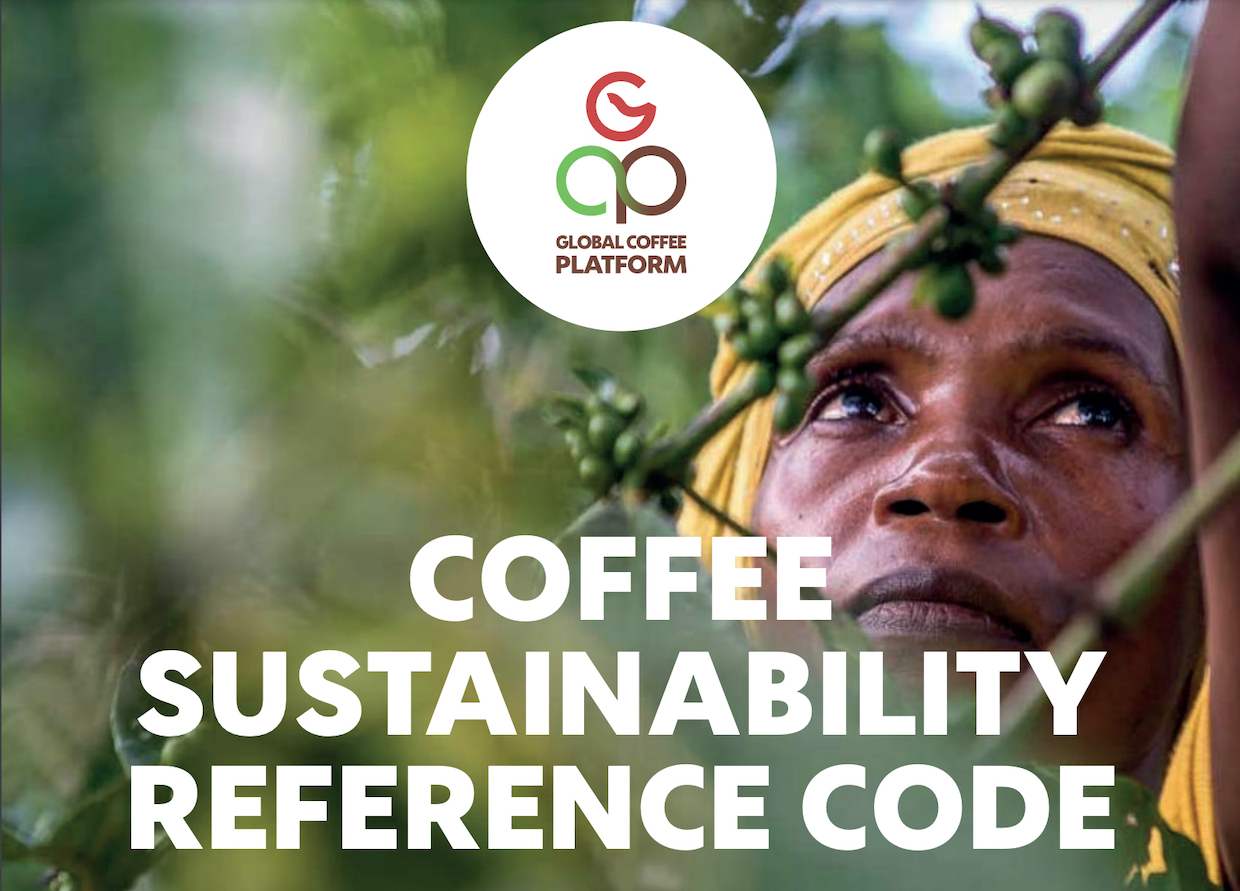The Global Coffee Platform (GCP) has released the new Coffee Sustainability Reference Code, a major reference resource designed to support coffee-sector-wide sustainability efforts.
The Coffee Sustainability Reference Code represents the third major revision of the code originally known in 2004 as the Common Code for the Coffee Community (4C).
The 2021 Code offers a common language and framework for baseline sustainability in coffee production, designed to allow farmers, producer groups, NGOs, government entities, financial institutions and others in the coffee chain to collaboratively advance their sustainability efforts.
More specifically, the Code focuses on economic prosperity, social well-being, and environmental stewardship, outlining 12 baseline sustainability principles, which are broken down into practices and expected results. Practices designated as “Critical” under the new Code are the elimination of the worst forms of child labor, the elimination of slave labor, no deforestation and no use of prohibited pesticides. New to the Code’s list of “Critical” practices is the need for “continuous improvement.”
The full Coffee Sustainability Reference Code can be found here, while the GCP’s summary of major changes can be found here.
“While the Coffee Sustainability Reference Code addresses the beginning of the supply chain, with farmers on the ground, downstream actors are expected to share the responsibility for sustainability,” GCP Executive Director Annette Pensel said in an announcement of the new Code today. “This includes supporting and incentivizing the efforts of coffee farmers to introduce, maintain, and go beyond these baseline principles across all dimensions, as well as promoting equitable trading and sourcing practices.”
Related Reading
- Coffee Brands Nearly Doubled Their Sustainability Claims in the Past Decade, Report States
- Sustainability Champion Angela Pelaez of RGC on Including Farmworkers
- A Review of the Sustainability Efforts of 500+ Coffee Companies
The origins of the Coffee Sustainability Reference Code can be reasonably traced back to 2004, with what was then the 4C code. The code subsequently informed the behaviors — and marketable sustainability efforts — of some of the world’s largest coffee organizations.
In 2016, through organizational restructuring, the 4C Association became the Global Coffee Platform, which subsequently revised and renamed the code. The group is not directly affiliated with 4C Services, which spun off in 2016 to become a separate third-party certification provider.
The GCP, based in Bonn, Germany, now counts many of the world’s largest coffee producing, trading and roasting organizations among its membership.
Next year, the group plans to release an associated update to what it calls the GCP Code “Equivalence Mechanism,” a mechanism that allows other third-party or in-house certification schemes to be recognized as equivalent to the GCP Code.
Under the previous code, sustainability certification schemes including 4C, C.A.F.E. Practices (Conservation International/Starbucks), Certifica Minas, Fairtrade and Rainforest Alliance were all recognized as equivalents, as were numerous in-house sustainability schemes from large green coffee traders.
In today’s announcement, the GCP underscored the ambitious goal for sector-wide sustainability.
Said Pensel, “The Coffee Sustainability Reference Code helps to enhance and align work underway so that more coffee farmers can be reached, and to encourage all coffee production to be sustainable.”
Nick Brown
Nick Brown is the editor of Daily Coffee News by Roast Magazine.







Comment